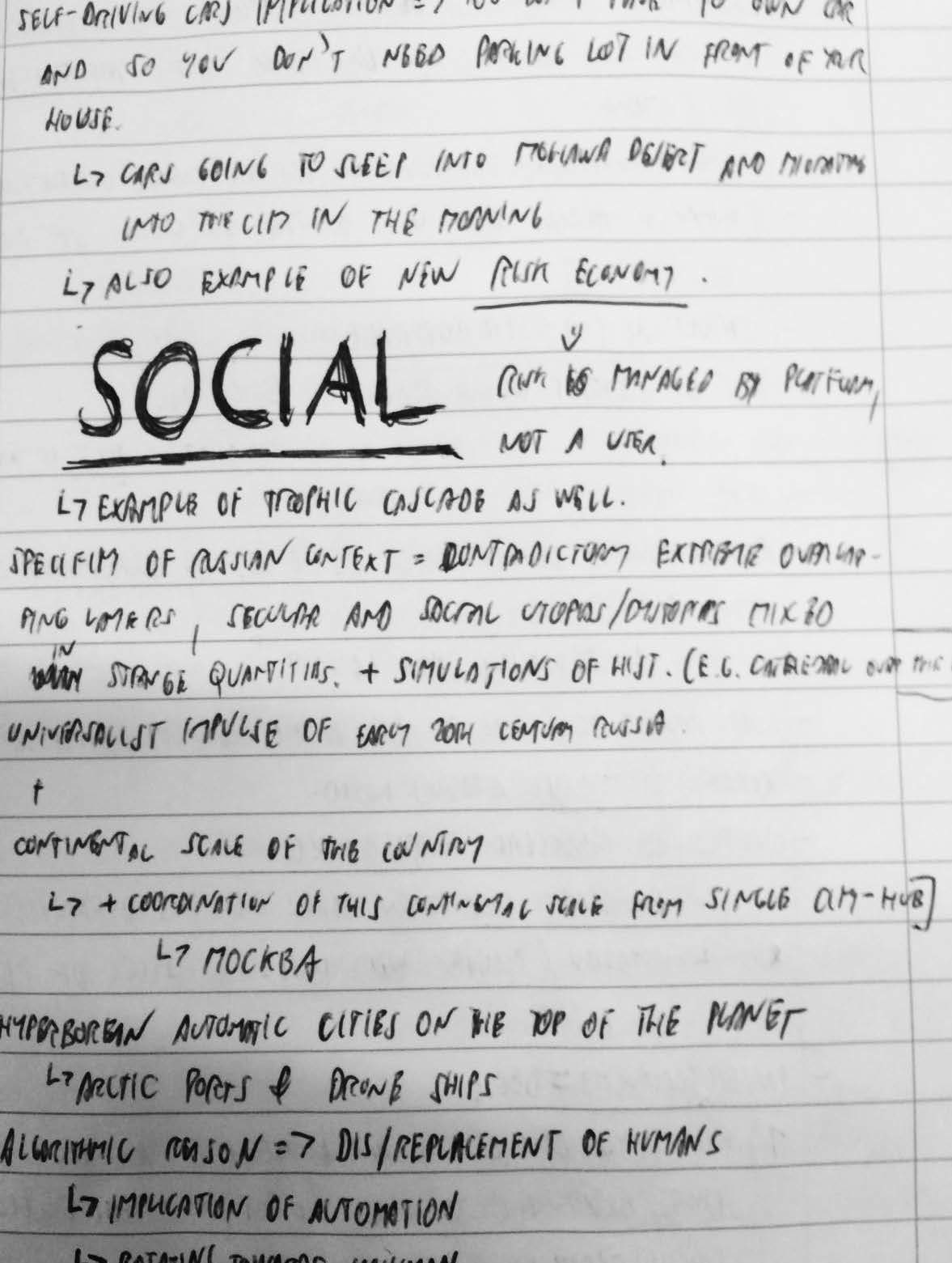Spaces of Conflict in the (post-)Anthropocene
Downloads
DOI:
10.31182/cubic.2018.1.012Keywords:
Militarisation, Habilitation, Cognitive Mapping, Sympoiesis, Digital PlatformsAbstract
This paper presents the idea of multispecies diplomacy on the background of unstable and violent political geographies of the Anthropocene. The idea is first defined in terms of associated notions of sympoiesis and habilitation. After the preliminary arrangement of the conceptual framework of the paper, the possibilities of multispecies diplomacy are assessed in relation to current militarisation of environment, that prevents any diplomatic solution of climate change and leads to increased environmental injustices worldwide. This is illustrated with an example of conflict in the Negev desert, where changing climate is inherently integrated into the structure of conflict. Secondly, digital infrastructures are identified as an ambiguous factor influencing the outlooks of future practices of multispecies diplomacy. Thanks to their capacity to redesign existing environment, they can act as forces of deterritorialisation that can either stabilise existing hegemonies or lead to subversive appropriation. As far as digital platforms are open to ideological reframing, ecosocialist politics engaging in multispecies diplomacy is encouraged to appropriate them in terms of cognitive mapping and habilitation.
How to Cite
Published
Issue
Section
License
Copyright (c) 2018 Lukáš Likavčan

This work is licensed under a Creative Commons Attribution 4.0 International License.
References
Agamben, Giorgio. Homo Sacer, Sovereign Power and Bare Life. Stanford: Stanford University Press, 1998.
Agamben, Giorgio. What Is an Apparatus? Stanford: Stanford University Press, 2009.
Art-Act. “What is rising.” Accessed September 6, 2017, http://art-act.fr/en/portfolio/fracking/.
Badiou, Alain. “La question de l’être aujourd’hui.” Court traité d’ontologie transitoire, 25–38. Paris: Éditions de Seuil, 1998,
Bowen, David. Fly tweet. Accessed September 6, 2017. http://www.dwbowen.com/flytweet/.
Bratton, Benjamin. The Stack. On Software and Sovereignty. Cambridge (MA): MIT Press, 2015. DOI: https://doi.org/10.7551/mitpress/9780262029575.001.0001
Callon, Michel. “Economic Markets and the Rise of Interactive Agencements: From Prosthetic Agencies to Habilitated Agencies.” In Living in a Material World. Edited by Trevor Pinch and Richard Swedberg, 29–56. Cambridge (MA): MIT Press, 2008. DOI: https://doi.org/10.7551/mitpress/7838.003.0003
Deleuze, Gilles. Difference and Repetition. London and New York: Continuum, 1994.
Deleuze, Gilles, and Félix Guattari. A Thousand Plateaus Minneapolis: University of Minnesota Press, 1987.
Descola, Philippe. Beyond Nature and Culture. Chicago: The University of Chicago Press, 2013. DOI: https://doi.org/10.7208/chicago/9780226145006.001.0001
Duffield, Mark, “The resilience of the ruins: towards a critique of digital humanitarianism,” Resilience 4, no. 3 (2016): 147–165. DOI: https://doi.org/10.1080/21693293.2016.1153772
Duffield, Mark. “Total War as Environmental Terror: Linking Liberalism, Resilience, and the Bunker.“ The South Atlantic Quarterly 110, no. 3 (2011): 757–769. DOI: https://doi.org/10.1215/00382876-1275779
Easterling, Keller. Extrastatecraft: The Power of Infrastructure Space. London: Verso, 2014.
Ek, Richard. “Giorgio Agamben and the spatialities of the camp: an introduction.” Geogr. Ann. B 88, no. 4 (2006): 363–386. DOI: https://doi.org/10.1111/j.0435-3684.2006.00228.x
Evans, Brad, and Julian Reid. Resilient Life. The Art of Living Dangerously. Cambridge: Polity, 2014.
Fuchs, Christian. Digital Labour and Karl Marx. New York: Routledge, 2010.
Gane, Nicholas, and Stephen Sale. “Interview with Friedrich Kittler and Mark Hansen. “Theory, Culture, and Society 24, no. 7-8 (2007): 323–329. DOI: https://doi.org/10.1177/0263276407086401
Georgescu-Roegen, Nicholas. “Energy and economic myths." South. Econ. Journal 41, no. 3 (1975): 347–381. DOI: https://doi.org/10.2307/1056148
Haraway, Donna. Staying with the Trouble: Making Kin in the Chthulucene. Durham: Duke University Press, 2016. DOI: https://doi.org/10.2307/j.ctv11cw25q
Illich, Ivan. Tools for Conviviality. New York: Fontana/Collins, 1975.
Jameson, Frederic. Postmodernism: Or, the Cultural Logic of Late Capitalism. Durham: Duke University Press, 1991. DOI: https://doi.org/10.1215/9780822378419
Kenis, Anneleen, and Matthias Lievens. “Greening the economy or economizing the green Project? When environmental concerns are turned into a means to save the market." Review of Radical Political Economy 47, no. 3 (2015): 1–18.
Keucheyan, Razmig. Nature is a Battlefield. Cambridge: Polity, 2016.
Kolling, Paul. terro0. Online. https://paulkolling.de/projects/terra0. Accessed September 6, 2017.
Latour, Bruno. An Inquiry into Modes of Existences. Cambridge (MA) and London: Harvard University Press, 2005.
Latour, Bruno. Politics of Nature. Cambridge (MA); London: Harvard University Press, 2004.
Latour, Bruno. Reassembling the social: An introduction to actor-network theory. Oxford: Oxford University Press, 2005. DOI: https://doi.org/10.1093/oso/9780199256044.001.0001
Latour, Bruno. We Have Never Been Modern. Cambridge (MA): Harvard University Press, 1993.
Likavčan, Lukáš. “Aesthetics, Ecology, and Google AI: A Preliminary Inquiry into Xenorationality.” Notebook for art, theory and related zones 21, (2016): 90–117.
Likavčan, Lukáš and Manuel Scholz-Wäckerle. “Technology appropriation in a de-growing economy.” Journal of Cleaner Production, (2016). doi:10.1016/j.jclepro.2016.12.134. DOI: https://doi.org/10.1016/j.jclepro.2016.12.134
Malm, Andreas. Fossil Capital. London: Verso, 2015.
Mehrotra, Rahul, and Felipe Vera. Ephemeral Urbanism: Cities in constant flux. Santiago: Ediciones ARQ, 2016. DOI: https://doi.org/10.4324/9781315672168-4
Mouffe, Chantal. “Hegemony and ideology in Gramsci.” In Gramsci and Marxist Theory. Edited by Chantal Mouffe, 168–204. London: Routledge & Kegan Paul, 1979.
Moore, Jason W. Capitalism in the Web of Life. London: Verso, 2015.
Pasquinelli, Matteo. “The Automaton of the Anthropocene: On Carbosilicon Machines and Cyberfossil Capital." South Atlantic Quarterly 116, no. 2 (2017): 311–326. DOI: https://doi.org/10.1215/00382876-3829423
Srnicek, Nick. “Navigating Neoliberalism: Political Aesthetics in an Age of Crisis.” Paper presented at The Matter of Contradiction: Ungrounding the Object, Vassivière, France, (8–9 September, 2012).
Srnicek, Nick. Platform Capitalism. Cambridge (MA): Polity, 2016.
Sun, Tzu. The Art of War. Pax Librorum, 2009.
Viveiros de Castro, Eduardo. Cannibal Metaphysics. Minneapolis: Univocal, 2014.
Weizman, Eyal. Erasure. The Conflict Shoreline. Göttingen: Steidl, 2014.

